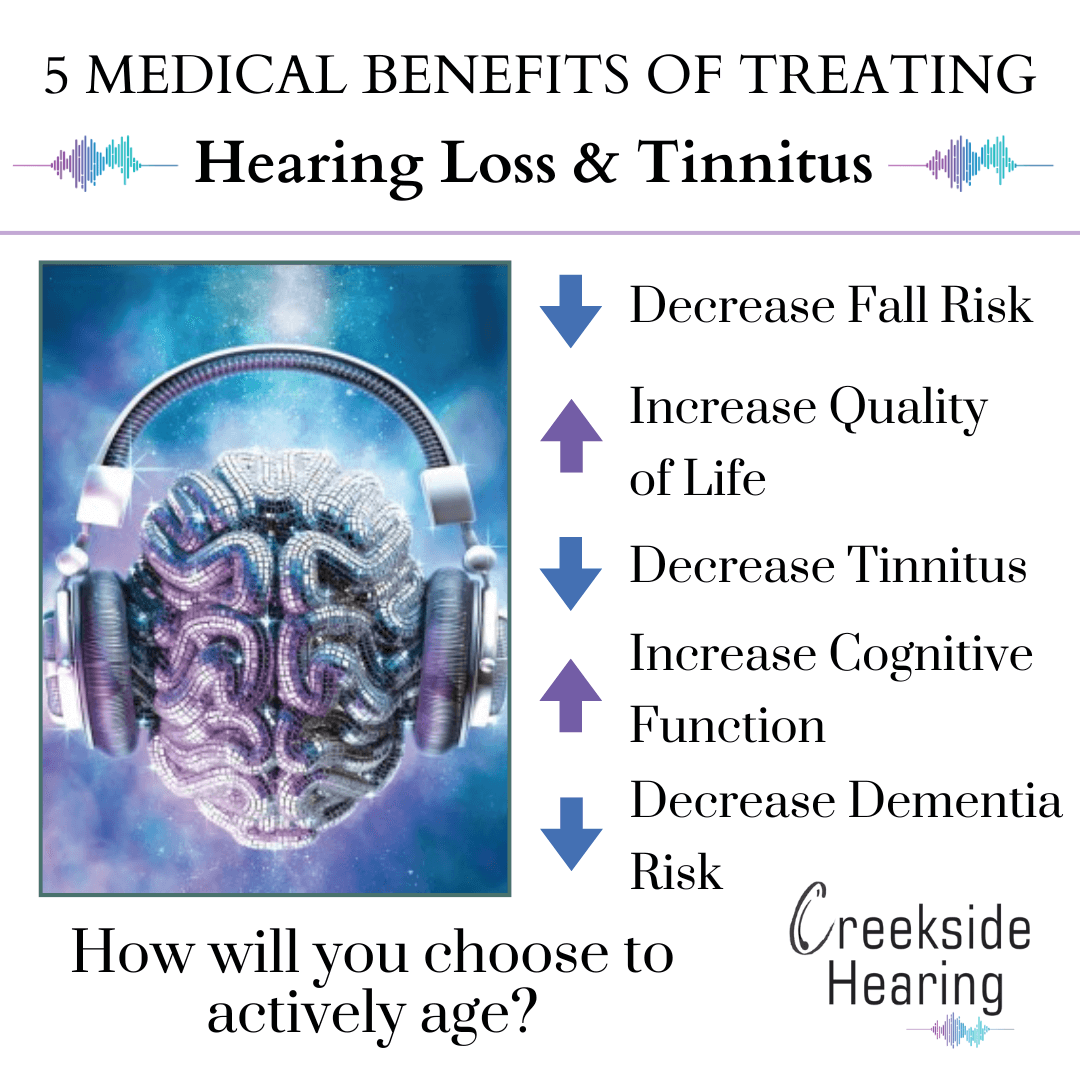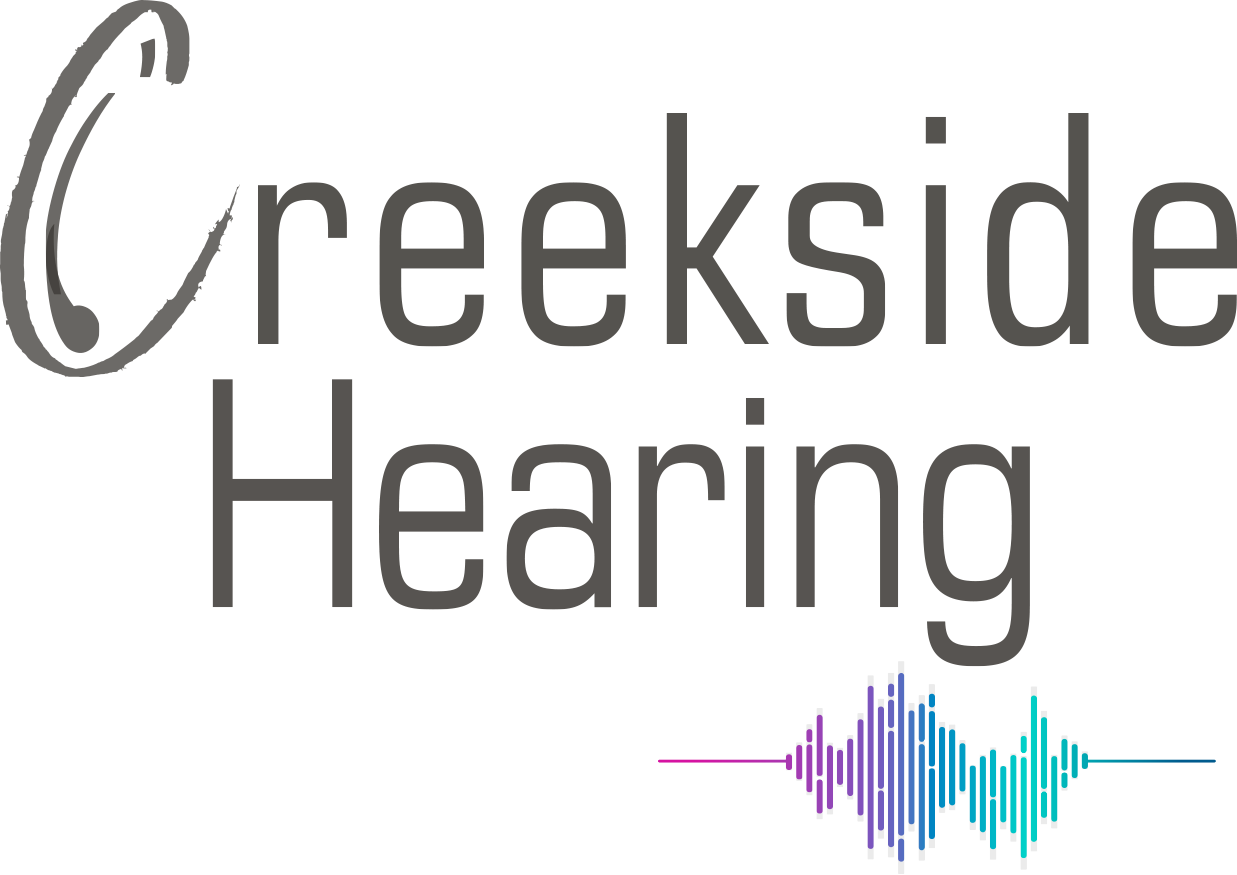Why Cognition Screening and Hearing?
At Creekside Hearing, we do a combination of hearing evaluations and cognitive screenings. This allows us to get a more comprehensive understanding of your individual health. Our hearing healthcare providers can better tailor solutions for your specific needs, and also help identify potential issues early, leading to better outcomes and a more personalized treatment plan.
The auditory pathway, which connects the ears to the brain, works hard to process sounds. When hearing is impaired, it puts more strain on the brain. This extra effort to focus on important sounds in noisy environments is linked to cognitive decline. Treating hearing loss early can help reduce the risk of memory and thinking problems later on.

Power of Cognivue
Embrace the Power of Cognivue for Your Hearing Health
Cognivue is a FDA approved, self-administered cognitive health assessment, completed in just 10 minutes, providing valuable insights into our cognitive well-being. By evaluating our capacity to perceive, process, and respond to auditory information, it offers a comprehensive understanding of our cognitive abilities. This assessment plays a vital role in preserving optimal hearing health and protecting against cognitive decline linked to untreated hearing loss. Its personalized and data-driven approach empowers individuals to proactively address cognitive decline, enabling tailored care that addresses their unique needs and challenges effectively.
5 Medical Benefits of Treating Hearing Loss and Tinnitus
Treating hearing loss and tinnitus early can significantly improve both physical and mental well-being. Active aging with proper care for these conditions reduces brain strain, enhances communication, improves safety, and maintains a higher quality of life. Managing tinnitus can also ease constant noise disturbances, making daily life more comfortable.

Decrease Fall Risk: Improved hearing helps individuals maintain better balance and awareness of their surroundings, reducing the likelihood of falls.
Increase Quality of Life: Addressing hearing loss and tinnitus enhances communication, social interactions, and daily activities, leading to a more fulfilling life.
Decrease Tinnitus: Effective treatments can reduce the intensity of tinnitus, alleviating the constant ringing or buzzing in the ears.
Increase Cognitive Function: Treating hearing loss can reduce cognitive overload, allowing the brain to focus on other tasks, thereby improving memory and concentration.
Decrease Dementia Risk: Early intervention in hearing loss may lower the risk of developing dementia, as untreated hearing loss is linked to cognitive decline over time.
Why Cognitive Screenings?
Cognitive Screening Plays a Vital Role in Empowering Patients to Take Action Sooner.
Treating hearing loss with a medical model treatment plan not only has the potential to improve quality of life over time, but it may also positively impact cognitive decline. Research has shown that hearing loss and tinnitus is associated with accelerated cognitive decline and incident cognitive impairment in older adults. By addressing hearing loss early on, individuals can potentially decrease cognitive load, which is known to contribute to cognitive impairment. Furthermore, cognitive screening allows for the detection of early signs of cognitive decline, enabling patients to seek assistance and further testing if needed. By integrating cognitive screening into the overall picture of their hearing health, individuals can ensure a comprehensive approach to their well-being and resolve any potential hearing-related aspects.

To learn more, we encourage you to explore our blog on How Addressing Hearing Loss Can Slow Cognitive Decline.
